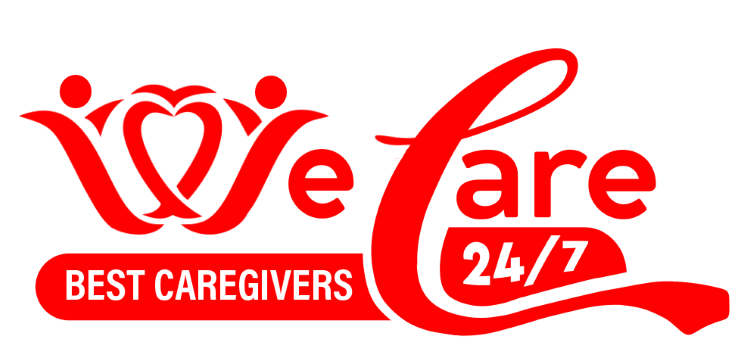Telehealth Home Care in NJ: 3 Mistakes Seniors Must Avoid

Navigating Virtual Care: Essential Avoidances for New Jersey Seniors and Their Families
As New Jersey continues to embrace innovative healthcare solutions, telehealth home care has become an increasingly valuable resource for seniors seeking accessible and convenient support. This technology empowers older adults to receive medical consultations, monitoring, and even some therapeutic services from the comfort of their homes, reducing the need for travel and enhancing continuity of care. However, like any evolving service, maximizing its benefits requires awareness and preparation. For seniors, their adult children, and caregivers across the Garden State, understanding common pitfalls is key to a successful telehealth experience. At WeCare Home Caregivers, we believe informed use of technology is paramount to effective care.
Telehealth offers significant advantages, especially in a state like New Jersey with its diverse landscapes, from bustling urban centers to quieter suburban and rural communities. For a senior living in, say, Sussex County, connecting virtually with a specialist based in Newark can eliminate hours of travel. For those in Bergen County managing multiple appointments, telehealth streamlines their schedule. Yet, despite these clear benefits, several common errors can undermine its effectiveness. Let’s explore three significant mistakes New Jersey seniors and their caregivers must strive to avoid.
Mistake 1: Underestimating Technology Requirements and Training
Many seniors and their families overlook the foundational elements required for successful telehealth: appropriate technology and the confidence to use it. It’s easy to assume a simple smartphone will suffice, but often, the experience can be hampered by outdated devices, unreliable internet, or a lack of basic digital literacy. This oversight can lead to frustration, missed appointments, and ultimately, a breakdown in the continuity of care.
Understanding Device and Connectivity Needs
- Adequate Devices: While a smartphone can work, a tablet or computer with a larger screen can significantly improve the clarity of video calls, making it easier to see the provider and any shared information. Ensure the device has a working camera and microphone.
- Reliable Internet: A stable, high-speed internet connection is indispensable. In areas of New Jersey where broadband access might be spotty, or for families on limited data plans, this can be a real hurdle. A weak connection leads to frozen screens, dropped calls, and fragmented communication, hindering effective diagnosis or consultation.
The Importance of Basic Digital Literacy
Beyond hardware, familiarity with software is vital. Many seniors may not be comfortable navigating video conferencing platforms, adjusting volume, or sharing screens. The learning curve can be steep without proper guidance. Expecting an older adult to intuitively master these tools without prior training or ongoing support is unrealistic and can lead to anxiety and avoidance of necessary care.
To mitigate this mistake, WeCare Home Caregivers recommends proactive steps. Families should assess the senior’s current tech comfort level and available equipment. Consider a trial run with a family member before the actual appointment. Many New Jersey public libraries, such as those in the Monmouth County Library System, offer free digital literacy classes or one-on-one tech help that can be invaluable. Our caregivers can also provide gentle, patient assistance with setting up devices and familiarizing seniors with the telehealth interface, ensuring they feel confident and prepared.
Mistake 2: Neglecting Privacy and Security Concerns
In an increasingly digital world, the privacy and security of personal health information (PHI) are paramount. A significant mistake is failing to scrutinize the security protocols of telehealth platforms or inadvertently exposing sensitive data. While the convenience of virtual care is appealing, it must never come at the expense of patient confidentiality.
Ensuring Platform Security and HIPAA Compliance
Any legitimate telehealth provider in New Jersey, including WeCare Home Caregivers, must use platforms that are fully compliant with the Health Insurance Portability and Accountability Act (HIPAA). This federal law sets strict standards for protecting sensitive patient health information. Using generic, unsecured video chat applications for medical consultations is a grave error. Such platforms lack the necessary encryption and security safeguards required to prevent unauthorized access to private health discussions or records.
- Secure Connections: Always conduct telehealth appointments over a secure, private Wi-Fi network. Public Wi-Fi hotspots, often found in cafes or malls, are inherently insecure and can expose your data to malicious actors.
- Verifying Provider Credentials: Ensure you are connecting with a verified healthcare professional. Be wary of unsolicited calls or links claiming to be from a medical provider. Always confirm appointments and contact details directly through your known care agency or doctor’s office.
Safeguarding Personal Information
Educating seniors and caregivers about common online scams and phishing attempts is also critical. These fraudulent activities often target vulnerable individuals, attempting to trick them into revealing personal or financial information under the guise of healthcare services. A reputable home care agency will never ask for sensitive financial details during a telehealth session beyond what is necessary for billing through secure portals.
WeCare Home Caregivers prioritizes your privacy and security. We utilize only HIPAA-compliant, encrypted telehealth platforms specifically designed for healthcare. Our staff are trained in best practices for data protection, and we educate our clients on how to identify and avoid potential security risks. We encourage seniors and their families to ask questions about our security measures – transparency builds trust, and your peace of mind is our priority.
Mistake 3: Failing to Communicate Effectively and Prepare for Virtual Appointments
The third common mistake is approaching a telehealth appointment without adequate preparation or a clear understanding of its communication nuances. Unlike in-person visits where a doctor can observe subtle cues, conduct physical examinations, or easily use tools, virtual consultations rely heavily on clear, concise verbal communication and visual information provided by the patient or caregiver. Poor preparation can lead to missed diagnoses, ineffective treatment plans, or the need for follow-up appointments.
Pre-Appointment Checklist and Environmental Factors
Successful virtual care begins before the camera even turns on. Many individuals fail to compile a comprehensive list of symptoms, questions, or current medications. This oversight can result in important details being forgotten during the appointment, especially for seniors who may experience memory challenges. Moreover, the physical environment of the telehealth session significantly impacts its quality.
- Organize Information: Before the call, write down all symptoms, their onset, duration, and severity. List all current medications (including over-the-counter drugs and supplements) with dosages, and any allergies. Prepare specific questions for the provider.
- Optimize the Environment: Choose a quiet, well-lit space free from distractions. Ensure there’s good lighting on the senior’s face, not behind them, to allow the provider to see expressions clearly. Minimize background noise from televisions, radios, or other household activities. A cluttered or dark background can make it difficult for the provider to focus or assess visual cues.
Understanding Virtual Limitations and Communication Best Practices
It is important to remember that telehealth has limitations. Providers cannot perform a physical examination or certain diagnostic tests virtually. Seniors and caregivers sometimes fail to understand when a virtual consultation is insufficient and an in-person visit is truly necessary. Clear communication regarding the severity or nature of symptoms is therefore paramount.
During the call, speak clearly and directly into the microphone. Encourage the senior to articulate their feelings and symptoms as best they can. Caregivers should be present to assist, provide context, and ensure all concerns are voiced. If a senior is experiencing chest pain, severe shortness of breath, or sudden neurological changes, a telehealth appointment is not the appropriate first step; emergency services (dial 911) or an immediate in-person visit should be sought. Understanding these boundaries ensures patient safety and optimal care outcomes.
At WeCare Home Caregivers, our team assists seniors and their families in preparing for telehealth appointments. We help organize information, ensure the environment is suitable, and facilitate clear communication during the call. Our caregivers can act as an invaluable link, providing observations and helping seniors convey their needs effectively to their healthcare providers.
WeCare Home Caregivers: Your Partner in Safe and Effective Telehealth in NJ
Embracing telehealth home care in New Jersey offers tremendous potential for enhancing the lives of seniors and supporting their health needs. However, avoiding these three common mistakes – underestimating technology, neglecting security, and failing to communicate effectively – is essential for a positive and productive experience. At WeCare Home Caregivers, we are committed to empowering our clients to leverage technology safely and efficiently.
Our dedicated caregivers are trained not only in compassionate personal care but also in assisting with the technical and communicative aspects of telehealth. We help set up devices, troubleshoot connectivity issues, ensure privacy, and facilitate clear dialogue between seniors and their healthcare providers. We believe that with the right support and education, telehealth can seamlessly integrate into a comprehensive home care plan, providing convenience, continuity, and peace of mind for families across New Jersey.
To learn more about how WeCare Home Caregivers can support your family with home care services, including navigating the world of telehealth, please visit our website or contact us directly. We are here to help New Jersey seniors thrive in their homes.



